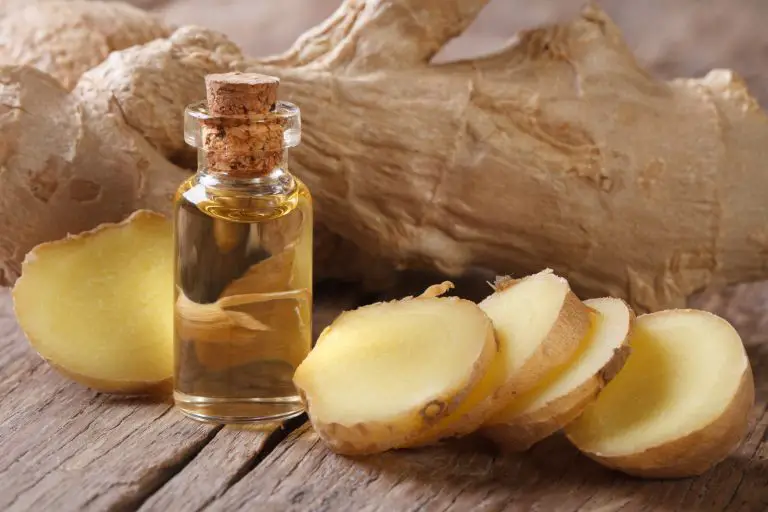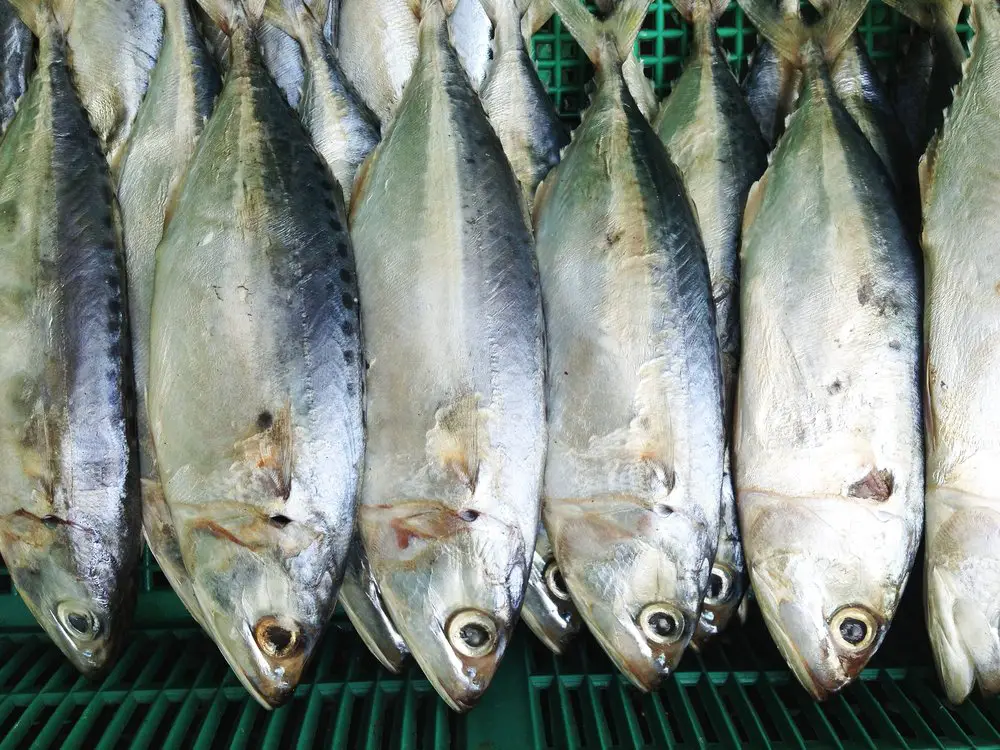
Page Contents
There are countless home remedies that you can try out at home to get your hair to grow. Some of these remedies feature ginger oil as their main ingredient. However, there is no guarantee that home remedies will actually work, and there is sometimes little to no scientific evidence to support them.
Ginger is a well-known plant that has many benefits, some of which have been proven. So, the real question as to if ginger oil can help with your hair growth is a bit easier to determine. First, ginger itself and its properties can be examined so that you get a better overall picture.
About Ginger
Ginger (Zingiber officinale) is the root of what is a flowering plant that is related to turmeric and cardamom. This root is used both as a spice and as a medicinal plant. Ginger is originally from southeast Asia, where it spread among the islands there, even traveling as far as Hawaii.
Ginger was in use by Romans and Greeks, becoming one of the spices that Europe sent ships to trade for. In the islands it came from, ginger had a religious significance. However, soon China and Europe became some of the most avid users of ginger.
Mentions of ginger are found in Chinese, Indian, and Middle Eastern medicinal and historical writings. Nowadays, India is the lead producer of ginger, with ginger being used fresh, powdered, candied, as an oil, in alcoholic beverages, and in many other ways.

What Is In Ginger
Ginger is almost loaded with various antioxidants, minerals, and vitamins. While these are not concentrated as much as they are in superfoods, ginger still has a good amount of many different nutrients you need.
Some of the more notable vitamins are: Thiamine (B1), Riboflavin (B2), Niacin (B3), Pantothenic acid (B5), Vitamin B6, Folate (B9), Vitamin C, Vitamin E, Calcium, Iron, Magnesium, Manganese, Phosphorus, Potassium, and Zinc.
Gingerol is an active compound found only in ginger that both relaxes your blood vessels and boosts your circulation. Ginger also has a couple of fatty acids that are good for your body. One that is found in ginger is linoleic acid.
Ginger is even equipped with some antiseptic and antimicrobial properties on top of all of that. These are things that are proven to be in ginger and, at the same time, proven to be good for your hair. As more studies are done on ginger, who knows what more will be found.
The Benefits Of Ginger For Your Hair

Ginger has all of the B Vitamins that you need, which helps with your energy and your hair. Meanwhile, the Vitamin C helps your health by boosting your immune system to help you fight off diseases. The Calcium, Iron, and other minerals in ginger help build up your hair and make it stronger.
Meanwhile, the antioxidants found in ginger are known to help your health in many different ways. Antioxidants help get rid of the various free radicals that can damage both your body and your hair follicles. Getting rid of these can certainly help your hair grow, not to mention that antioxidants are also great for your immune system.
The gingerol’s boost to your blood flow is something that is always good for hair growth since it helps needed nutrients get to your follicles more efficiently. Fatty acids are great for your hair, acting as conditioners to give moisture to your hair so that it does not become brittle.
A dry scalp can also become itchy, which can lead to inflammation if you give in to the temptation to scratch at it. Brittle hair not only breaks far too easily, but it also looks dry and scraggly. There is something about ginger that is anti-inflammatory too.
While more of an indirect help, ginger does help with certain stomach problems. Fewer stomach problems helps with your digestion and, in turn, makes sure that you are getting the nutrients that your hair needs from what you are eating.
The antiseptic properties of ginger help keep any form of infection at bay. Meanwhile, the antimicrobial properties fight off other problems like dandruff. Since the dead skin cells that the dandruff makes can block up your follicles and cause thinning hair, ginger’s help with this can help with hair loss in this area.
Related Reading
Negative Effects Of Ginger
Ginger is a great herb, as long as you don’t take it too far. Even the best herbs should be used in moderation. Ginger can have certain side effects if you use too much of it, and some people are sensitive to ginger.
While gingerol is proven to increase blood flow, there is debate as to whether or not this is good for your hair. Blood flow to your scalp is undeniably good. However, in some studies, pure gingerol seems to inhibit hair growth for whatever reason.
Though there is still much about this that is not known, it is clear that you should take it easy on the ginger. It is rare, but entirely possible, to have an allergic reaction to ginger. If you are not certain, test the ginger out on the inside of your wrist or something before using it to help with your hair growth.
Some signs that you might be reacting to the ginger can include: a red rash, hives or welts, itchiness, inflammation, or a burning sensation. However, these are reactions to applying it to your skin. If you are allergic to eating ginger, it will cause other side effects including: stomach cramps, diarrhea, excessive gas, and heartburn.
Additionally, ginger can also react with certain medications, especially ones like blood thinners. Ginger oil, in particular, can be quite potent, and it is more likely to cause some form of a reaction compared to either fresh ginger or powdered ginger.

Making Ginger Oil
Buying ginger oil from the store is more reliable, and you get a more concentrated oil that is more likely to give you the results you are looking for. However, it is possible to make your own ginger oil, and it is really quite simple.
To make ginger oil, you need only two ingredients: 1 cup of fresh ginger and 1 ½ cups of olive oil. Rinse the ginger – you do not need to peel it – and then let it dry before you start. Once your ginger root is dry, shred it with a cheese grater or something similar.
Add the shredded ginger to the olive oil in an oven-safe dish. Set it in the oven at 150 degrees Fahrenheit for a couple of hours. Then, pour the oil and ginger through a cheesecloth to strain out all of the ginger.
Use your hands and squeeze as much of the oil out of the ginger as much as possible, then put your new ginger oil in a clean bottle. Your homemade ginger oil should stay good for around six months and should not develop any mold or foul odor if you did it right.
Using Ginger Oil
Ginger may be great for your hair, but deciding how to use it for your hair can be troublesome. Fresh plants of any kind contain more nutrients than their dried and powdered counterparts. However, fresh ginger is a little harder to find, and it can go bad.
Powdered ginger, though, sometimes has yellow color added to it. This type of powdered ginger can leave a yellowish tint in your hair, which you do not want to have. This is also why ginger oil is perhaps the best of both.
Ginger oil takes as much of the nutrients out of the ginger as possible, does not go bad on you, and it does not have that yellow coloring in it. There are many different ways that you can use ginger oil on your hair, ranging from simple to more complicated.
Ginger oil can come either in the form of an extract or as an essential oil. The difference between these two types of ginger oils is that essential oils are purer, while extracts often have synthesized ingredients added to them. In fact, some extracts are made of essential oils mixed with something else.
This makes ginger essential oil more concentrated than ginger extracts, which is why you should always dilute your ginger essential oil. Without being diluted, ginger oil can give you a slight burning sensation. To dilute it, mix it with a carrier oil like coconut oil, olive oil, or something similar.
Using the ginger oil on your hair is not something that you need to do every day. In fact, you could probably use the ginger oil only twice a week. All in all, applying the ginger oil to your scalp is likely best done every other day if you want results quickly.
Method #1.
The first method of applying ginger oil is simple and easy. Just mix the ginger oil with the carrier oil, rub it into your scalp for a minute or two, and then let the ginger oil sit there. You can leave the ginger oil in for half an hour to an hour, or longer if you want. Then rinse the ginger out of your hair.
To get the most out of the ginger oil in your hair, there are a couple of tips that you can take advantage of. First, heat makes more blood come to the surface. So, you can heat up a towel or something and put it over your head to make your head hot.
Second, massaging the ginger oil into your hair will also get the blood flowing to your scalp. You do not need to put a ton of ginger oil on your hair. Simply focus on rubbing it into your scalp, and don’t worry about the ends of your hair.
Method #2.
As an alternative, you can also use ginger oil in a hair mask. The simplest hair masts will be made solely of ginger oil, a carrier oil, and something acidic like yogurt or lemon juice. Mix all of these in even amounts, cover your hair with the mix, cover your hair with a hair cap, leave it for an hour, and then rinse it out.
This is only slightly more trouble than using solely ginger oil. However, the acidic ingredient helps your hair not be as oily after you rinse it out. You can choose almost any acidic ingredient that you want, with some acidic items being just as good for your hair as the ginger oil is.

Method #3.
Your third option for using ginger oil is to make a paste of it with something else. Garlic cloves or onion can be blended up and added to the oil to make a paste. Moringa is a superfood with tons of benefits that could be blended up with ginger oil as well.
Almost anything that you know to be good for your hair can be added to ginger oil to form a paste. You should still add some carrier oil to the ginger oil first, but you can get by with added a little less of the carrier. Simply apply the paste to your scalp, let it sit, and then rinse it out.
Final Thoughts
While ginger undoubtedly has many benefits that can clearly help with your hair growth, there is no concrete proof that ginger does so. The only thing you have as evidence is the many stories of people who have found that ginger has done wonders for their hair.
However, there are just as many people for whom ginger has done absolutely nothing. As with any other hair treatment, ginger oil will not give you instant results. You should use the ginger oil faithfully for at least 6 to 8 weeks before giving up on it.
You can check out Ginger hair loss results for before and afters here.
Putting ginger oil on your hair is perhaps the best way to use it to help with your hair growth. However, there are other ways of using ginger for your hair, including making fresh ginger into a paste. You can buy ginger tea and then place the teabags on your hair.
Taking ginger internally may not help with your hair as directly, but it still has its uses. You can drink ginger tea, take ginger as a supplement in a capsule form, or you can include more of the powdered ginger in your foods.







Ginger oil just smells SO good and leaves your hair soft and shiny. I have some hair loss from wearing too many hair styles. My hair is fine and thin, so it breaks easily (plus hair shedding). However, this hair product did wonders for my hair loss! I saw a lot of hair growth, especially were my hair breakage was (no more frizz!). Definitely keeping ginger oil in my natural hair care routine!